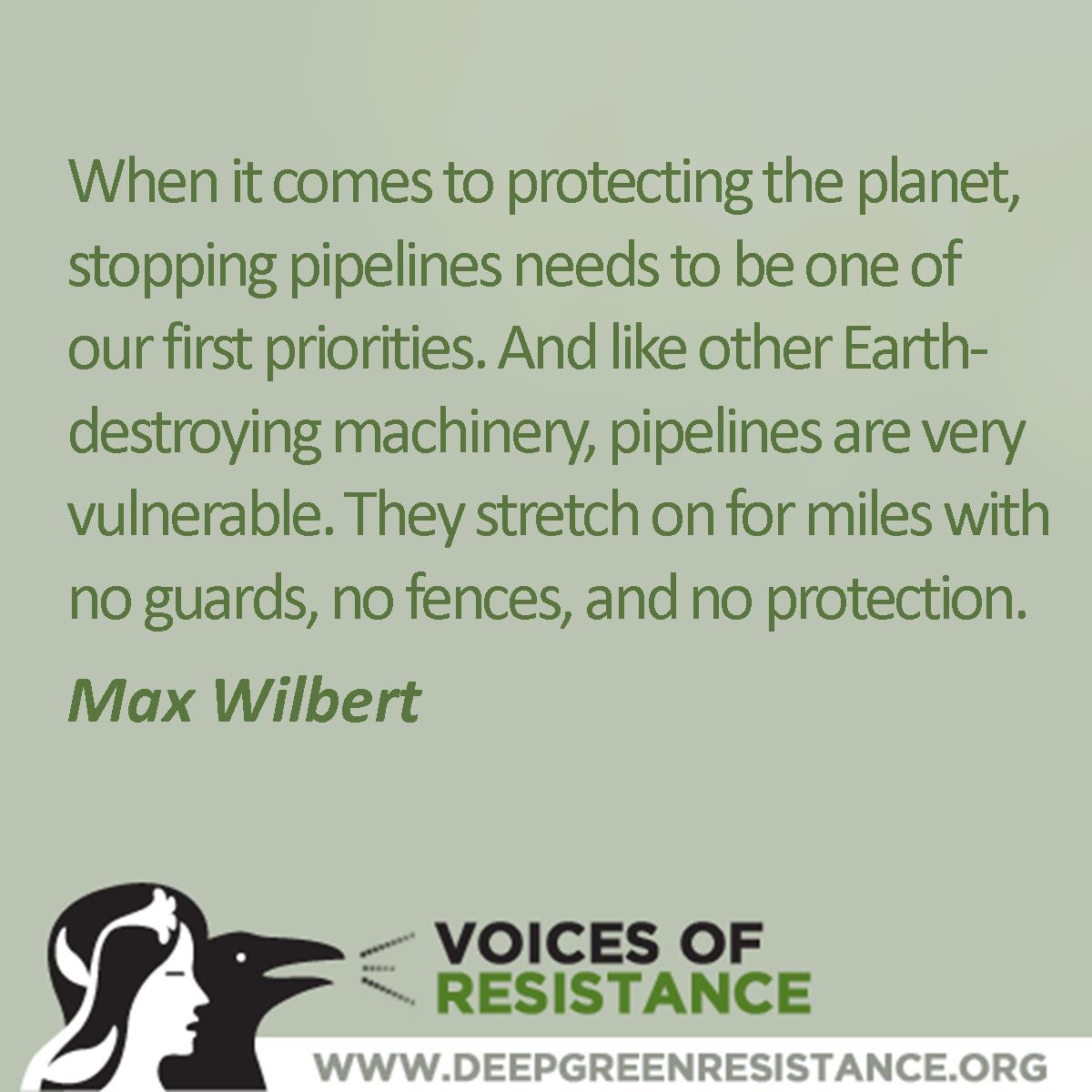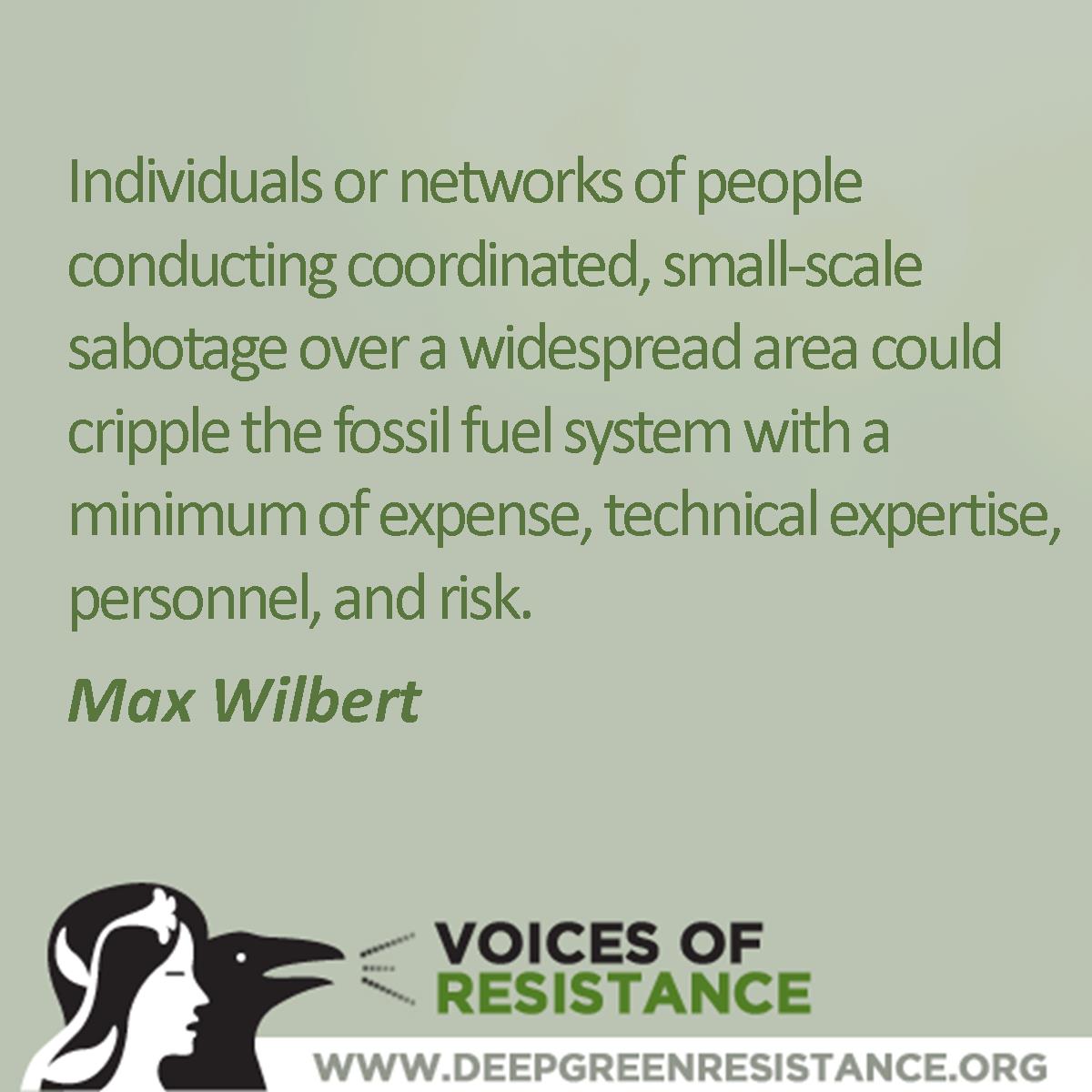Trump’s election has sabotaged any prospect of reigning in the global warming crisis by Max Wilbert / Deep Green Resistance
On Tuesday night, the American people decided to elect Donald J. Trump, a billionaire business mogul and reality TV star who has been accused of raping or otherwise sexually assaulting twenty-three women, who has called for banning immigration to the United States, and who has built a campaign on virulent racism.
He received more than 60 million votes.
There is a lot to process. Those conversations, about the growing tide of white supremacy, about Trump’s pending sexual assault cases, about the fact that Hillary Clinton won the popular vote, about the left’s failure to engage with the white community on issues of race, and about the gerrymandering and voter disenfranchisement that characterizes the American system, are already taking place.
I want to focus here on one specific issue: global warming. As I’m writing this, I’m sitting in the sun outside my home. It’s November, and temperatures are more than 20 degrees above the typical average here. This year, 2016, is predicted to be the hottest year on record, beating out last year, which beat out the previous year, which beat out the previous year, each of the last five setting a new mark.
Records are being smashed aside like bowling pins. We are in the midst of a global catastrophe, and it is even worse than previously thought. On the day after the election, news broke that the climate is more sensitive to global warming than most calculations had suspected.
The study in question predicted nearly double the warming that the Intergovernmental Panel on Climate Change (IPCC) had previously expected. The new data predicts between 9 and 14 °F warming by 2100, enough to potentially lead to the extinction of the human species and flip the Earth into a completely new regime more similar to Venus than Earth. Michael Mann, one of the most well-known climate scientists in the world, says these findings and the changing political situation may mean “game over for the climate.”
Into this mess strides Donald Trump, who has said that if elected, he would “immediately approve” the Keystone XL pipeline, roll back environmental regulations, further subsidize the fossil fuel industry, and back out of the Paris climate agreement. Coal and oil stocks, as well as shares of equipment companies and railroads, jumped in price after news of his victory hit.
 Right now, thousands of native people and allies are gathering on the cold plains of North Dakota in an attempt to stop the Dakota Access Pipeline. Under President Obama, such popular movements had a chance—a small chance, but a chance—of success. Under Trump, there won’t be so much leniency, and the road to victory will be much harder.
Right now, thousands of native people and allies are gathering on the cold plains of North Dakota in an attempt to stop the Dakota Access Pipeline. Under President Obama, such popular movements had a chance—a small chance, but a chance—of success. Under Trump, there won’t be so much leniency, and the road to victory will be much harder.
History is clear; social movements have generally flourished under slightly more progressive administrations, and waned under right wing leadership. What does this mean for our strategy?
I would like to have a peaceful transition to a sane and sustainable world, but it seems increasingly impossible. The American people have shown themselves to be a reactionary force, clinging to their privilege as if it can shield them against the arrows that originate in American foreign policy. Immigrants come here because their lands have been destroyed for American capitalism, and groups like ISIS have emerged from a slurry of war, oil, racism, and fundamentalism.
Perhaps, then, we need a different type of change. When it comes to protecting the planet, stopping pipelines needs to be one of our first priorities. And like other Earth-destroying machinery, pipelines are very vulnerable. They stretch on for miles with no guards, no fences, and no protection.
Recently, a number of activists, including some who I know, were able to approach and shut down all five pipelines that carry tar sands oil into the United States in a coordinated act of non-violent civil disobedience. Their action was brave, but its long-term efficacy depends on whether courts will agree with them that their action was necessary and create a precedent to normalize actions of this type. With another Antonin Scalia on the way to the Supreme Court, a positive outcome is in doubt.
 Coordinated action of another type could be more effective in protecting the planet. In plain language, I speak of sabotage. Individuals or networks of people conducting coordinated, small-scale sabotage over a widespread area could cripple the fossil fuel system with a minimum of expense, technical expertise, personnel, and risk. It is simple to disappear into the night, and with proper security culture the possibility of capture is remote. We’ve seen how vulnerable this network is; anyone could do this.
Coordinated action of another type could be more effective in protecting the planet. In plain language, I speak of sabotage. Individuals or networks of people conducting coordinated, small-scale sabotage over a widespread area could cripple the fossil fuel system with a minimum of expense, technical expertise, personnel, and risk. It is simple to disappear into the night, and with proper security culture the possibility of capture is remote. We’ve seen how vulnerable this network is; anyone could do this.
It isn’t idle speculation that such attacks would have a substantial impact. Its actually been done before, most notably in Nigeria, where indigenous people in the Niger River Delta have risen against polluting oil companies many times over the past several decades. Most recently, attacks on oil pipelines earlier this year shut down some 40 percent of Nigeria’s oil processing. Months later, the oil industry still hasn’t recovered.
To many people, this plan will sound insane. Modern life is dependent upon oil in so many ways. But when oil is killing the planet and those in power will not respond to rational argumentation or peaceful protest, and when sixty million people are willing to vote a climate-denying sexual abuser into office, what options are we left with? It is time for serious escalation.
Max Wilbert is a writer, activist, and organizer with the group Deep Green Resistance . He lives on occupied Kalapuya Territory in Oregon. To repost this or other DGR original writings, please contact newsservice@deepgreenresistance.org